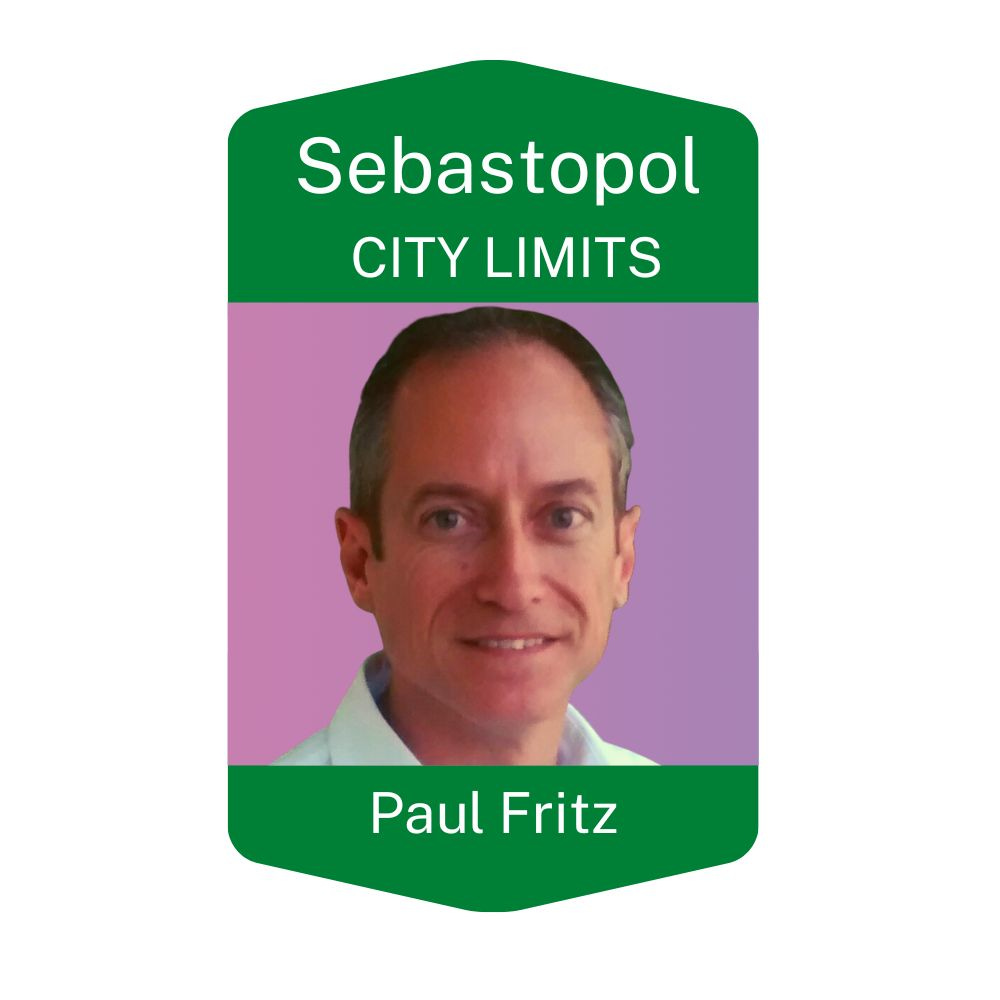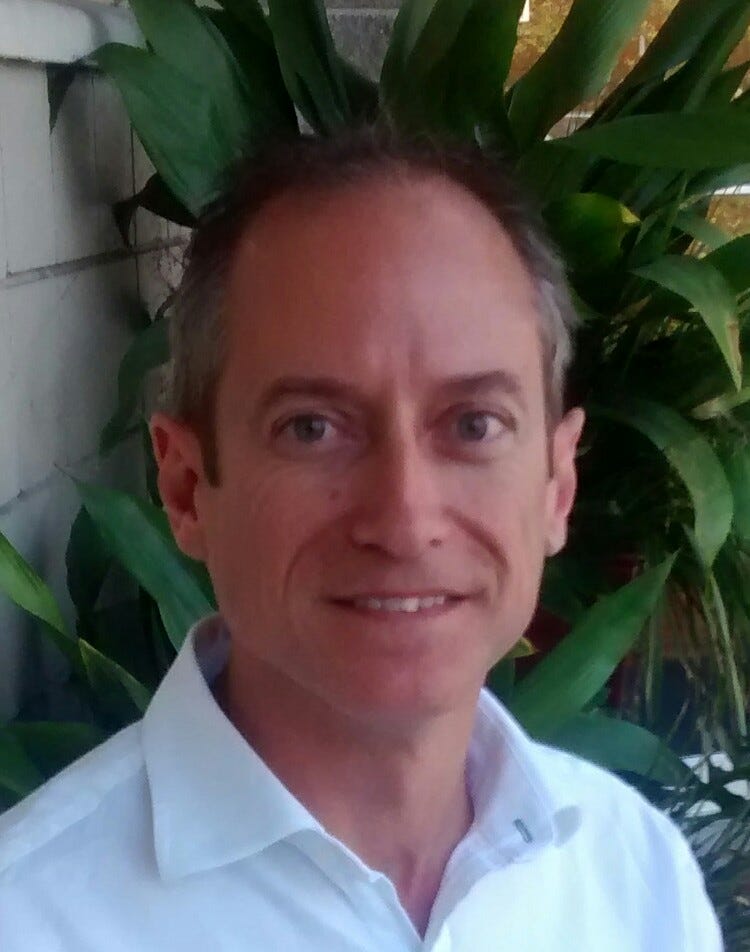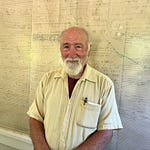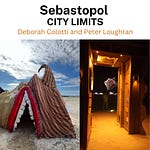Paul Fritz is an architect in Sebastopol and a member of the CORE Project. He has been an advocate for parklets as a way for people to reoccupy the public spaces devoted to cars. During Covid, parklets became an answer to indoor use restrictions and cities everywhere were approving them. Paul did a lot of the leg work to obtain permits to bring parklets to Sebastopol over two years ago.
All three of Sebastopol’s parklets require a temporary permit from Caltrans, who owns the right-of-way on these major roadways. Caltrans extended those permits but decided earlier in the year that they would expire December 31, 2022. They did set up a process with an annual fee and guidelines for applying for a permanent permit.
The decision to move forward and apply for permanent permit for the parklets in Sebastopol was brought before the City Council earlier this month, and they decided to move forward and apply only for one permit for the South Main Street parklet in front of Retrograde Coffee and Sunshine Cafe. The City Council’s decision on Sebastopol’s parklets is covered in this companion article:
Paul is frustrated by the City Council’s decision to not move forward with Depot Street Parklet in front of Screamin’ Mimi’s. He is not optimistic that the space will continue to be used as a public space for people.
Paul has written about the three parklets on his blog: here.
Transcript
Paul Fritz on Sebastopol's Parklets
Dale: Welcome to Sebastopol City Limits. I'm Dale Dougherty and I'm joined today by Paul Fritz. And Paul has been involved in Parklets in Sebastopol, and perhaps other places.
But Paul, give us a little bit of background on you. You're an architect.
Paul: Yeah, so I'm an architect. I have a practice in Sebastopol. Office is right downtown on Main Street. And I've had my own office for about 12 and a half years now. I've been in my current location. It's formerly originally in my house, and I've been in this office for about seven and a half years, I think. And I was a member of the CORE Project, which has been a group of business owners in Sebastopol that got together about 11 or 12 years ago. Couple architects, couple graphic designers, a landscape architect, and we've been trying to do a variety of things to improve the vibrancy and vitality of downtown Sebastopol.
The CORE Project also has been involved in this kind of parklet issue. Parklets started in San Francisco in the early two thousands.
Dale: We hear the word park and it's double meaning there of a parking space and a park.
Paul: The original parklet was started by this group in San Francisco, and they just went out and put some like astro turf down in a parking space and a couple of chairs and occupied it for a day and they just kept feeding the meter. It was a metered parking space and they just started doing this. They established what they called Park(ing) Day, which is I think the third Friday of September every year since. And this has become a global phenomenon where people just go and occupy a parking space for a day.
And the CORE Project did a few of those events in 2013 or 2014 or something. We had a couple different locations where we did the kind of little parklets. The whole concept is so much of the public space in our communities is devoted exclusively to cars, and it was just an idea to make people think about that fact that so much of our public land space is just all exclusively for cars. So this is a way to think about maybe reoccupying those spaces for people and they really took off pretty strong in San Francisco. The city instituted a policy and have a whole kind of department within their planning department devoted to parklets.
And so they've been doing them for a number of years and typically they were sponsored by a business. Business will come to the city and say, I would like to create a parklet. And they would be responsible for the design and construction. They get a permit from the city, and the parklet was to be public space.
It wasn't allocated to any one specific business. It was just expansion on the sidewalk with some seating so people could, get food to go, have a place to eat it, meet up with friends, go to a cafe, bring their coffee out.
Dale: That was the testing of parklets and they've spread to lots of other cities.
Paul: Yeah, lots of other cities started adopting parklet standards and around the country and around the world. And generally they've been very well received in their communities. And this group, the CORE Project that I've been involved with, was pushing the city and we actually had the person who ran the San Francisco's program up to do a talk one night. After that we pushed the city to adopt a parklet ordinance, which the city did in, maybe 2015. I can't remember exactly when. And basically the ordinance said, the city's supportive of this. If you want to do one, follow San Francisco's kind of guidelines.
San Francisco got a whole kind of packet developed of how you do a parklet. That is something the city of Sebastopol adopted, and one of the caveats was you have to get an encroachment permit either from the city, if it's a city street, or from Caltrans, if it's a Caltrans street, which most of our downtown is Caltran streets.
And so the CORE Project in 2017 did a one-day event where we put up three parklets. We did one kind of in front of Retrograde, one by the Gypsy and the Cookie Company. And then we also have blocked off Depot Street as it extended, across Petaluma Avenue and that spot in front of Screamin' Mimi's and create it. It was a one day event. We had volunteers construct these kind of parklets and they operated for a day. We got an encroachment permit from Caltrans to do this event. So we, went through the proper channels and Caltrans required drawings of what it was and locations and all that. We got a one-day encroachment permit from Caltrans to do that.
Dale: Were there any fees associated with Caltrans?
Paul: I don't believe there were any fees to apply. The application has to come from the city. The CORE Project put the application together and the city was the official submitter. Not any just random organization or business could apply to Caltrans.
It had to be a city or a local nonprofit organization, like the Chamber of Commerce for example, applies for an encroachment permit from Caltrans to do the parade when we have the Apple Blossom Parade. So they have to get a permit from Caltrans and the Chamber of Commerce, I think is the applicant for that.
Dale: So there's a history of doing this, and then we come up to Covid.
Paul: And then once Covid hit and restaurants and businesses couldn't have anyone inside, all across the country, and again, all across the world people started allowing parklets to happen much more easily.
Just as a way to hurry up and to help the businesses so people could have outdoor dining or cafes and things like that. So there was a big push to make that happen. And again, the CORE Project was trying to push the city to do it, and it took some time. Again, I think partly, the city was intimidated by the Caltrans issue.
And so I finally jumped in and said, Look, I'll do some research and someone must have done this already on Caltrans right-of-way. And I found out that in the city of Saratoga, They had already done this and they, I think, Saratoga installed theirs months after the pandemic started.
So July of 2020 Saratoga had installed them, so I contact them. I think it was maybe August. And I talked to the city engineer and said, how did you get this through Caltrans? What was your process? And he said, it's pretty straightforward. We just put up these plastic K-rails, which are the barriers you see along highways when they do construction projects.
So we put up some K-rails and we built a little ramp. We built some ramps so you could get off the curb, down onto the paving to make them accessible. That was Caltrans. It has to be accessible and it has to be safe. So that was the kind of quick and easy solution. So I said if they approved it in Saratoga, they should approve it in Sebastopol.
So I worked with the city engineer and I actually put together the application, did some drawings and talked to businesses about locations. We got the location in front of Screamin' Mimi's and created the one in front of Retrograde and Sunshine Cafe. And then People's Music, the owner of People's Music was really interested.
Again, that process with Caltrans was very simple.
Dale: Did Caltrans pass a broad approval that there's a temporary period for parklets?
Paul: Because of Covid, Caltrans said, we will allow parklets, on the Caltrans right-of-ways. They had a process that you had to fill an application; you had to provide a drawing; you had to provide photographs. It was pretty straightforward. It took me a couple hours to put this together. And Caltrans approved it within two days. They were very...
Dale: It was quick.
Paul: Really pretty quick once it happened.
Dale: When did they get installed in Sebastopol?
Paul: So in Sebastopol, they were installed in November, Mid-November.
So the city decided to get the concrete K-rails, and installed them in mid-November, and then the businesses agreed to furnish them and put seating and things in them. And they then got Earth Tone Construction to donate some materials and a group of volunteers to build the platforms.
So the ones in front of the People's Music and the one in front of Sunshine Cafe and Retrograde have platforms, so we didn't have to do the ramps down to the street level to keep them accessible. The one at Depot Street was accessible just because there was already a curb cut there for a ramp to get down to the crosswalk.
So if you're a disabled person, you go into the crosswalk and then you can get into the park. So again, we had to amend our application to build a platform. And Caltrans again was very easy to deal with at that point. And then we said, some of the businesses wanted to put heat lamps and things like that. And Caltran all along the way, Caltrans is like yeah, that's fine. You can put furniture in it.
Dale: So almost two years we've had them running and sometime earlier this year, they said these were temporary permits. Yeah. You're gonna have to apply for permanent parklets and you have to do that by the end of the year.
Paul: Yeah. We've had a couple of permit extensions. They had set time period and we've got a couple of extensions and the current extension is expiring on December 31st of this year.
And they said that there will be no more extensions, so if you want to continue the parklets, you have to apply to make them permanent. And so that's where we currently are. Earlier this year, in February, the City Council directed staff to apply for another extension because the current extension was about over.
So they directed the city engineer to apply for another extension, and that's the one we have currently till December 31st. And we also discussed making them permanent and at that time they agreed that the parklet in front of Sunshine and Retrograde could be made permanent. And they directed staff to kind of work with Caltrans to find out what that process is to make a permanent parklet.
But the other two locations, they did not decide to make them permanent at that time. And so last week's City Council meeting was another discussion, of kind of an update from staff. Okay, here's the process from Caltrans. Caltrans told us what they want. This is what we have to do. And we had a further conversation about, what about the other locations?
And there's still some hesitation about the other locations from the full Council. They did not agree to make any of the other locations permanent, but they did confirm that the Retrograde/ Sunshine Cafe location could be permanent.
Dale: Right. Now to some degree People's Music is closed, so there isn't a strong advocate for that anymore.
It's Depot Street, the area in front of Screamin' Mimi's, is at once the most popular of the parklets, but maybe the most problematic just because of its location and it's the intersection of two busy streets. And the space itself, it isn't really just a parking space.
Paul: Yeah, it's more than just a parkland. Cause it's not just in the parking zone, it almost has become like a little mini plaza, and and again, many cities around the world have been doing similar things. They're reassessing again, how much land is devoted to cars.
And big cities and small cities are finding spaces like the Depot Street extension and saying is this really useful for our transportation network? And when it's not, they say, What can we do? And so many of them are taking steps to take these sort of, not particularly functional, from an auto transportation standpoint, entering them into something for actual human beings.
Dale: It was a problematic area before that it had a parklet.
Paul: That's always been problematic; it's a difficult intersection and it has a very strange geometry and it's
Dale: a triangle.
Paul: Personally, when I look at it, and I haven't talked to the police department about this or anything to see what the accident statistics are. But I would think that from a traffic circulation standpoint, it's actually a bit safer because, if you imagine traveling west on Depot Street to get to this, place that's now been blocked off, you have to cross two lanes of Petaluma Avenue while there's not even of a full block to the south are people turning right from Sebastopol Avenue onto Petaluma. It's very difficult to get across as a car. And I think blocking that section off then cars just have to turn right onto Petaluma and go around.
Dale: So the other side is Screamin' Mimi's did not open. It still has not opened inside.
Paul: Yes.
Dale: And its customers have used this parklet.
Paul: Yes.
Dale: And as many of the people said in the meeting, it's actually been a symbol of people being outdoors. So you pass through town and you see people outdoors eating and that makes people feel good.
Paul: Yeah. And I've heard kind of these types of spaces, referred to as like front porches for a community.
Yeah. It's really when you think about hanging out on your front porch and you see your neighbors walk by and they stop and you chat with 'em, and it's a very social kind of environment. Personally as an architect and kind of someone that's interested in urbanism and making good places for people like this is what our community needs more of, these kind of outdoor places where people see each other and be seen. Human beings are very social. We like to see where other human beings are.
Dale: Would you say that the City Council, they did not agree to apply for a permanent permit for the Depot Street.
Paul: Correct.
Dale: But they seemed interested in figuring it out, with a commitment to that, meaning Mayor Slater said it's a pocket park. Could we obtain this from Caltrans?
Paul: Yeah. And I think there at that City Council meeting again, the city engineer, which is not a city staff person, that's a consulting firm, they were tasked with working with Caltrans to see what it would take to get Caltrans to give this piece of land back to the city.
And there have been prior conversations with Caltrans about this, and my understanding is those conversations, Caltrans has said, yeah, this really isn't doing anything for the Caltrans Transportation Network. We don't really have any need for this. So I think the chances are good, the Caltrans will relinquish this.
Dale: But there seems to be some fear of Caltrans.
Paul: Caltran is a behemoth of an organization and they have their ways and they're not always the most progressive or creative. But I think that there are elements in Caltrans that do understand the value of spaces like this and the importance of these places. And I think, our task is to find those people that can be supportive.
I've talked to other people, people in other places who have Caltrans right-of-ways, and I know the city of Calistoga is trying to make their parklets permanent. They also have the main street of downtown Calistoga is a Caltrans right-of-way and they got a temporary permit for parklets. And so they're trying to make those permanent.
I did contact the engineer in Saratoga to find out if they were making theirs permanent, and he said, no, they are not. They're, gonna take them down. And I've talked to people in bigger cities, the guy that runs the program in Oakland and asked them if they've, ever had to deal with Caltrans and they haven't. And unfortunately the bigger cities have plenty of other streets that aren't Caltrans right-of-ways that they can do this on. They don't have to worry about Caltrans. But I'm sure there's many small towns across California that would benefit from this if they could do it easily.
Dale: Let's review some of the problems that were raised about, particularly the Depot Street one. I think there's a general fiscal responsibility thing that the City Council saying, we approved money for the Retrograde parklet, but we didn't approve money for this.
We would have to revisit that. Yeah. So that's one of the problems.
There was an an accident, a car came through there in June. But there were some changes made to it as a result of that. There are liability concerns and that the city would be liable for any accident that happens within these spaces.
Paul: To speak to those, so the cost issue, and I've been trying to communicate this to the city, during this whole kind of, or for years we've been doing this. Like I said, originally in San Francisco, the business wanted a parklet, they were responsible for doing it.
They didn't get money from the city.
Dale: Right.
Paul: The city was not building parklets. The businesses were building parklets, and I know the business owners that are involved in the parklets now are all accepting of-- they're willing to contribute some money towards doing this.
I think the city doesn't need to take this on fully as a city funded project. I think the businesses are willing to contribute. I know there are grants for this kind of thing, and there's lots of organizations around the country that have grants for, they call it placemaking grants, to create spaces for people and communities like this.
So I think that's an opportunity. Given the popularity of these parklets, there's a change.org petition with over a thousand signatures. I think there's an opportunity for crowdfunding.
Dale: The owner of Retrograde said she'd be willing to cover some of the fees involved.
Paul: So one Caltrans requirements, which is incredibly bogus in my mind. And I think this needs a lot of pushback, is that Caltrans is requiring $6,000 a year as a lease payment for a parklet. Which if you think about, we don't pay Caltrans anything right now to lease the sidewalks or to lease the parking spaces or the driving lanes.
But now we want to convert a little bit of parking space to a place for people and now we have to pay for it. That doesn't make any sense. So again, I'm hoping we can find the right person in Caltrans who understands that doesn't make any sense and it's actually somewhat pathetical the Caltrans,, they have a push to make complete streets and things, more places for people and safer for people. And this is not aligned with that by charging this fee.
Dale: How about the safety issue?
Paul: Yeah, in terms of the safety issue, yes, there was that accident and the car to come to the park lot. Fortunately, no one was injured. Soon after that, the city kind of reconfigured those K-rails, they put up K-rails on that side where the car came through. Now, it would be very difficult for another car to get through something like that.
You see this around the plaza. The plaza is separated from the parking spaces by those big concrete bollards. So in a permanent situation, that is certainly possible. The safety of the people in the parklet would need, or the plaza, whatever we're calling it at that point would need to be taken into consideration. But there are certainly design techniques that could prevent and --you can't prevent any kind of everything. But I think there's ways to make them very safe. And, to be honest, before the park lot was installed, there was, and that was just a street; a car ran into Mimi's into the building, so cars hit buildings sometimes too.
Dale: But does the city's liability, that's a question if there had been injuries in that accident.
Paul: I think the city manager spoke to this at the City Council meeting that the city does have liability insurance. It does cover the parklets. The city is part of sort of self-insurance program with many of other cities in the county. And we've talked about this in our meetings and our insurance meetings and Yeah, all these cities have parklets and they are all insured. When you're walking down the street and a car went off the street, hits you on the sidewalk, the city has some liability for all these kind public spaces.
Dale: So another area of problems are that have to do with how they in a sense, serve a business. Certainly this Depot Street serves the interests of Screamin' Mimi's. There are disgruntled business owners not wanting the parklets to continue. Seems it's a problem to deal with. Yeah. But. I guess just to add the flavor that Caltrans is specific about these parklets not being used like as extra seating for a restaurant.
Paul: Yes. And that, again, like the origins of the parklet were that this is public space. This is not serving anyone's individual business. During the pandemic, a lot of people, especially parklet people who have been parklet proponents for a long time are starting to shift their thinking a little bit on that, on that point, because they've seen how when a restaurant is allowed to have outdoor seating, it just really adds to the vibrancy of a place. And again, it makes a place more active. And webinars and talks that I've heard in the past two years, people are like, maybe actually, probably is okay for some of these parklets to be used for a more specific business.
Maybe not all of them should be, related to a business, but it's okay for. Probably some of them and cities would've to figure out what's the right ratio or whatever. But from my standpoint, as I've been thinking about this, because I heard that comment at the meeting and I've been thinking about it and I think we have some really great examples of, I actually think it's really important to have an activating sort of business near a parklet.
If you think about the places where the parklets are very popular, this Depot Street is super popular. People hang out there all the time. Many of them are Screamin' Mimi's patrons. But as the owners of Screamin' Mimis have said, they go through the garbage and they see Acre pizza boxes and they see Retrograde coffee cups and other, waste products from other businesses. So other people use it for other purposes. Clearly it is a benefit to the patrons of Screamin' Mimi's.
Dale: While those people are their customers, they're the ones that are choosing to go there. They want hang out there. They like that space.
Paul: Yeah. And I think, Mimi's is planning to reopen their interior, I think, next month. They have to close down for a period of time to reconfigure everything. So they're gonna close down for a few days in October. So they can reopen their interior space.
So it'll be interesting to see if people choose to be inside or outside, once that happens. But again, if you think of the three kind of current parklets we have, and especially now that People's Music is closed, that one's hardly ever used. When People's Music was open, they would sometimes have musicians come and play in the parklet, and that would attract people, and that was great.
Just having a parklet next to a retail business doesn't always assure that it's going to have people occupying it. Whereas having one next to a place like Screamin' Mimi's or Sunshine Cafe, those get activated because those are activating types of uses. You can also look to just caddy corner across the intersection from Screamin' Mimi's. There's that kind of big plaza space in front of CVS. No one ever hangs out there, but you're not gonna go to CVS and buy your shampoo or pick up your prescription and then sit outside. Just not a use that encourages that kind of activation. You're not gonna tell your friend, hey, let's meet at CVS.
Dale: I think that's a good point though. There's kind of symbiosis between a good business and a public space where the people want to hang out.
Paul: And I think that the Barlow is a great example of that. There's a variety of outdoor spaces. Many of them are related to specific business, but there's a lot of outdoor space that's not related.
Dale: Common space.
Paul: There's a lot of common space in the Barlow, but those again, there are typically near businesses that have an activating use. There's the kind of food court area, that's places where people, the little grassy area where kids are playing all the time. There's a variety of spaces there that are public, shared spaces in addition to the more private restaurant-specific spaces.
And, downtown has no space really like that. We don't have... we have the plaza and the plaza gets activated when there's an event like the farmer's market, right? And a lot of people go to the plaza and hang out there. But short of having an event like that, not a lot of people hang out in the plaza. I've heard comments about this Depot Street once. People go to Mimis, they can just go to the plaza and hang out, and it's just a different thing. It's not, again, there's no real reason to be in the plaza. It's not a super inviting space. It's surrounded by cars and it's, again, there's no activating use for the plaza.
And I think that's an important thing to consider as we think about, these types of spaces moving forward.
Dale: So where do you think things ended up from the City Council and what are your thoughts about moving it forward?
Paul: To be honest, I'm not super optimistic. I just feel I don't know. I was hoping for more enthusiasm from the City Council about this. There was definitely a direction to, the Retrograde/Sunshine location to make that permanent. But it is going to be a bit of a process with Caltrans. There's the $6,000 lease issue to work out. I don't think it's going to be difficult to get a design approved by Caltrans, but I don't know. To be perfectly honest, I've been trying to get this implemented for a long time. I feel like the city, for whatever reason continues to drag their feet on this issue. There just doesn't seem to be a real push, a real drive or real passion, unfortunately. I feel very passionate about it.
I've been trying to get this done. Again, we don't have a city engineer. We have a, this consulting engineer and that was one of the issues. We've allocated money for them to do this, but not allocated money for them, to do this. It becomes a kind of budgetary issue because we don't just have a city engineer we can turn to and say, here, just get this done. You're the city engineer and this is a priority. We wanna make this happen. I'm just not confident that the kind of players involved from the city's side of things care enough about it to get it done. And two of the strongest proponents of the parklets are Sarah and Pat, I would say. And they're not gonna be there in a couple months. Again, like I'm not super optimistic at this point. The temporary permit expires at the end of the year and I don't have a lot of confidence that we're going to be able to get a permit before that happens.
So I have a feeling these will all be removed and at that point I think it's gonna be really hard to get another one installed. It's gonna even be more, more difficult really. Unfortunately, and I wish I was more optimistic about it, and I'm generally very optimistic person, but a real struggle.
Three of the council candidates did speak at the meeting and they all seemed hesitant as well about the issue of parklets. So I think without a strong champion on the council, I'm not super optimistic at this point, which is unfortunate because I think Main Street could really use it.
And as a, as a Sebastopol resident, I live in town. I work in town, I love them. I love when I drive into town from Santa Rosa and I see so many people hanging out in that Depot Street location. And when I turned south on South Main, there was a bunch of people eating at Sunshine Cafe. It's this is the kind of place I wanna live. I wanna see people and I want it to be active and vibrant. And without the parklets, I think we'd be really losing a lot of that vibrancy. And Main Street, to be quite honest, is struggling. There's quite a few vacancies and even some of the businesses are there not what I would say, like high end, high visibility, high traffic producing businesses. .
Again, we have a perfect example, kind of case study, between the Barlow and Main Street. And I know the fear of Main Street merchants when the Barlow was a concept was it's gonna take the thunder from downtown and it has. I think largely because they have space for people. It's a people oriented place.
People feel comfortable walking around. Lots of places for people to sit and downtown just doesn't have the same vibe. And I think it's gonna struggle and it's gonna struggle more if we get rid of the parklets. The parklets are a draw and like I said, it's the front porch and it's like a welcome to Sebastopol and visitors coming through and see people, they're like, oh, this looks like a fun place, I wanna stay. . And without that, I think we'll miss them if they go away.
Dale: Thank you Paul. This is a really good background on the parklets. And I hope it's not over. Thanks for sharing your insights and the work you've done to date on.
Paul: Thank, thanks for asking. I appreciate the time and I was a little frustrated at the City Council meeting cuz I've been doing this for years. I've been really advocating, pushing this and I got two minutes to talk and it was hard to get all of my-- as you can see, if you just talk to a half an hour, I could talk a long time about this.
Dale: There's something wrong about the way meetings are organized. You should almost have a workshop.
Paul: Yeah.
Dale: To work on solving the issues. Really should be almost moved off to get a group of people that are really stakeholders in this and see if you can come up with a way to solve it.
Paul: No, I very much agree with that. And then to be perfectly honest, I was very frustrated. I did the application for these temporary parklets. I've been pushing for this for years. I really, not to toot my own horn, but I really made this happen. And I didn't even know about the meeting until a week before. Like when it was on the staff report and I got the staff's meeting agenda for the city council meeting, I had no heads up, Hey Paul, this is coming. You might wanna be involved or whatever.
Dale: A number of people seemed to raise process issues that that how they collected the information and the timing of the meeting and things like that too.
Paul: None of the parklet advocates, the business advocates were contacted ahead of this meeting. But yet there were three letters of opposition in the staff report, which seems at least, I don't know if it's intentional, but it doesn't have good optics. I guess I'll say
Dale: Thanks a lot Paul.
Paul: Thanks Dale.














